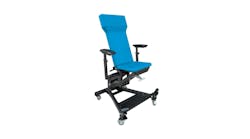Content brought to you by ABRN. To subscribe, click here.
What you will learn:
- At an MSO, it's not only the owners who need to consider an exit strategy.
- The 'Great Resignation' is driven by changing attitudes toward work, in part because of the impact of COVID-19.
- The 'Great Regret' can follow if poor choices are made.
There have been many articles and classes on how an independent collision shop owner moves on to the next phase of his or her life, usually referred to as an “exit strategy.” Usually, that implies some sort of retirement, or at least getting closer to it. That may mean selling to another repairer, consolidator, heir, or someone else. It may mean an immediate action or one that takes place over a period of time. It may or may not include some form of employment, short- or long-term. It may or may not include a real estate transaction such as a sale or lease agreement.
But in today’s world, many shops have become part of a larger MSO group. And what if you are one of the many who work for an MSO, especially in management? There are now many more of us who fit into that category than owners. We, too, need an “exit strategy.” And how should we approach the topic?
The Great Resignation/The Great Reassessment
You are no doubt familiar with the phrase, “The Great Resignation.” According to a Washington Post article a few months ago, there are 4.9 million more people who aren’t working or looking for work than there were before the pandemic. There’s a surge in retirements, with 3.6 million people retiring during the pandemic, or more than 2 million than expected.
According to a recent Indeed survey of employers, the Great Resignation is a real and present issue for the majority of employers. Although 26 percent dismiss it as hype, the remaining 74 percent say otherwise.
In fact, 41 percent fear that resignations will remain high well into the future, and over half (51 percent) believe the current resignation trend poses a problem for the economy overall.
Nearly all (89 percent) employers believe the Great Resignation is being driven by changing attitudes toward work, and for most, this goes back to the far-reaching impact of COVID-19.
Workers now must consider their physical health when weighing an opportunity in sectors where this wasn't a factor just a few years ago. It follows, then, that 55 percent of respondents believe fears related to the novel coronavirus are the top cause of their current hiring struggles.
And 76 percent of employers agree that once a few employees resign, others typically follow.
Understanding the full picture, however, requires a closer look at the pandemic’s psychological and emotional impact.
Most employers surveyed (88 percent) agree that the pandemic led workers and job seekers to rethink their career and work priorities, which aligns with the argument that the Great Resignation is actually a Great Reassessment.
The reassessment is playing out in all facets of the labor market this year, as people make very different decisions about work than they did pre-pandemic. Resignations are the highest on record — up 13 percent over pre-pandemic levels. Workers are shifting where they want to work — and how. For some, this is a personal choice. The pandemic and all of the anxieties, lockdowns and time at home have changed people. Some want to spend more time with family. And others want a more flexible or more meaningful career path. It’s the “you only live once” mentality on steroids.
And there’s been a boost in entrepreneurship that has caused the biggest jump in years in new business applications.
When is it time for you?
When is the best time for you to move on to retirement or semi-retirement or any other alternative from that collision repairer MSO you work for? I suspect there are as many different answers as people it applies to. It is a personal question, but one that we all must ask and answer, at least eventually.
And frankly, I am not a good example, as I have been answering the question, “When do you intend to retire?” with “Oh, two to five years,” or, “two to three years” for about the last 12 years.
Obviously, finances play a huge role. One must have enough money to sustain the lifestyle one chooses for retirement years. Statistics show that the vast majority of Americans are poorly funded for retirement and too dependent upon social security. And with some modest lifestyle choices, we may find that we don’t need as much as we think, though inflation may change the equation.
There are those who perceive retirement as an indefinite vacation, including travel, leisure, recreation, socializing, and nice meals, a time of few obligations and lots of fun. While I respect those, for me that would be limited in fulfillment. And we have probably all seen those folks who strive for that retirement date, do as I just described, then wind up sitting around doing little and in some cases “tipping over and dying.” As they say, one can only golf or fish so much.
Statistically, those who stay active and spend some time on a cause (usually helping others) find more fulfilment and live longer lives. And in my opinion, why not work on a cause for the collision industry?
I am inspired by professional drag racer John Force. He is arguably the greatest drag racer ever. Undeniably, he has more event wins and more national championships than any other drag racer. I have had the opportunity to get to know him and know that while he is gregarious and colorful on television, he also has a kind, caring, and giving side. He recently turned 73. Amazingly, only days before his birthday he won a national event in Charlotte, N.C., competing with people who are mostly decades younger and achieving speeds over 320 mph. In interviews, especially after a win, when there is an implication about his age, he often says, “Get off the couch!” referring to those living a sedentary lifestyle, often people of an age associated with retirement. I find that motivating!
I know a few people of retirement age (55+?), who after leaving the MSO, have started other businesses, such as consulting or calibration centers or niche market service companies. They often state that they want to accomplish “one more thing” before retiring. And some say that they are wired in a way that causes them to want to stay active and engaged in our industry. Some refer to it as still “having fire in the belly” or “fuel in the tank.”
My personal belief is that it should be about leaving a legacy, creating a better world, inspiring and helping others, and striving for excellence in what we do, choosing what is important and living life as if this were our last day, focusing on what is truly important, and serving others before ourselves. Those are lofty goals, but it seems that those who live their later years to these standards live the best retirement years. And as part of our plan, whenever possible, I believe we should develop our own replacement. Some studies (“Good to Great,” by Jim Collins) show that the most successful businesses are those well led by a great (level 5) leader, followed by being led well by a great (level 5) successor.
The Great Regret
The phrase “The Great Regret” is one that I hear more frequently. It refers to those who participated in “The Great Resignation” then felt a sense of disappointment and loss in their choice. It illustrates my points of my personal preferences for retirement years. I know people who have set that retirement date and enjoyed their free time for a while, followed by a sense that something is missing in their lives. Some seek jobs of a more menial nature, such as driving jobs or being a greeter at Walmart. They often state that they enjoy some activity, gain some extra income, and get a chance to interact with people. I respect and appreciate that. Though for me, I enjoy some greater challenges and, therefore, will be more inclined to not give up my current managerial and industry activities. Instead, I will find a way to gradually transition into traditional retirement. Perhaps it is just me; perhaps it’s in my genes, as my mother worked full-time as a registered nurse (RN) until she was 88.
Whatever our conclusions may be, it is wise to those of us working in MSOs to contemplate our retirement years and make carefully selected plans. As the data shows, many of us are making choices regarding “after the MSO" — make wise ones.





